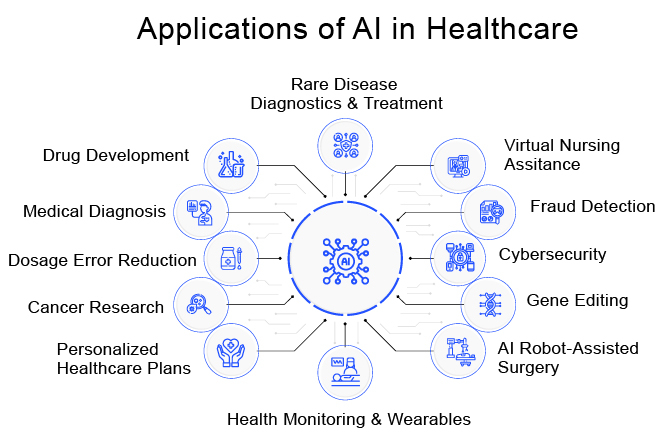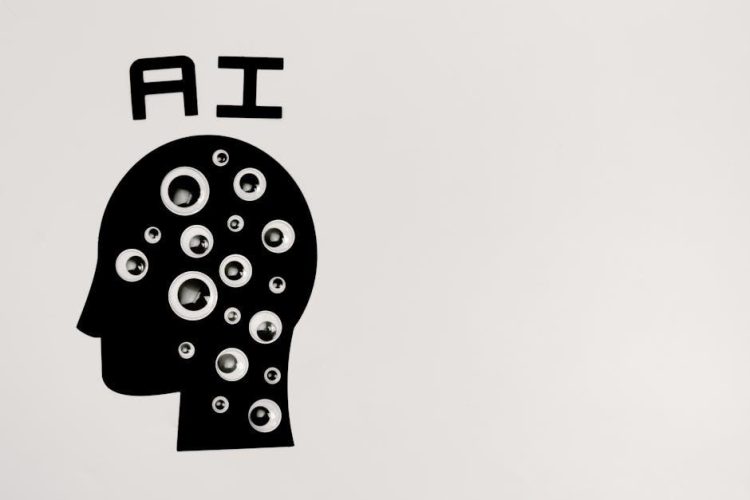In a world where robots are performing surgery and algorithms are prescribing medication, it’s safe to say that artificial intelligence has officially invaded the healthcare industry. From Big Data analyzing patient information to chatbots diagnosing symptoms, the landscape of modern healthcare has been forever changed by the rise of AI. So buckle up, grab a scalpel (metaphorically speaking), and let’s explore the wacky and wonderful ways that AI is revolutionizing the world of medicine.
The Evolution of AI in Healthcare
AI in healthcare has come a long way from the days of robotic arms clumsily wielding scalpels. Today, AI is making a huge impact in the medical field, helping doctors diagnose diseases, predict patient outcomes, and even perform surgeries with precision that would make even the most seasoned surgeon jealous.
One of the most exciting applications of AI in healthcare is its ability to analyze massive amounts of data in a fraction of the time it would take a human. Imagine a supercomputer crunching numbers faster than a toddler devouring a bag of candy – that’s the power of AI in action.
With AI on the scene, doctors no longer have to rely solely on their gut instincts when making critical decisions. AI can sift through mountains of patient data to identify patterns and trends that humans might miss, helping doctors make more accurate diagnoses and treatment plans.
As AI continues to evolve in healthcare, the possibilities are endless. From personalized medicine tailored to each individual’s unique genetic makeup to AI-powered robots performing surgeries with a level of precision that is unmatched by human hands, the future of healthcare is looking brighter than ever.

Improved Diagnostics and Treatment Options
Are you tired of doctors using outdated and unreliable diagnostic tools? Say goodbye to those medieval methods and hello to the new age of diagnostics! With cutting-edge technology and innovative techniques, medical professionals are now able to pinpoint your health issues with precision and accuracy.
But wait, there’s more! Not only do we have improved diagnostics, but we also have a plethora of treatment options to choose from. Gone are the days of one-size-fits-all prescriptions. Now, doctors can tailor treatments to suit your specific needs and preferences.
Whether you have a mysterious ailment that has stumped doctors for years or just need a little tune-up, the future of healthcare is here. Say goodbye to guesswork and hello to personalized medicine.
So next time you visit your doctor, don’t fret. With , you’ll be in good hands. Who knows, you might even enjoy the process!

Enhancing Patient Care and Monitoring
So you’ve mastered the art of patient care and monitoring, but why not take it up a notch? Here are some tips to enhance your skills and make your patients feel like royalty:
- Personalized Care Plans: Treat each patient like a VIP with a customized care plan tailored to their individual needs. Whether they’re a cheese lover or a yoga enthusiast, find ways to incorporate their hobbies and preferences into their treatment.
- Advanced Monitoring Technology: Say goodbye to outdated monitoring devices and hello to the latest technology. From smartwatches that track vital signs to AI-powered diagnostic tools, staying ahead of the curve will impress your patients and colleagues alike.
- Empathy Training: While monitoring their vitals is important, don’t forget to monitor their emotional well-being too. Brush up on your empathy skills and show your patients that you truly care about their health and happiness.
By combining these tips with your already impressive patient care and monitoring skills, you’ll be well on your way to being the ultimate healthcare superhero. So go forth, don your cape (metaphorically, of course), and make your patients feel like the true VIPs they are!
Addressing Healthcare Access and Equity
Let’s get real for a moment – healthcare can be like navigating a maze with blindfolds on. But fret not, my fellow health warriors, for we are here to shed some light on this tangled mess of a system!
First things first, **accessibility** is key. Imagine a world where we could all hop on our magical unicorns and zoom to the nearest doctor’s office in a flash. Unfortunately, reality is a bit less whimsical. So, what can we do to bridge the gap?
- Telehealth – because who doesn’t want to chat with their doctor in their fuzzy pajamas?
- Mobile clinics – forget ice cream trucks, we want healthcare on wheels!
- Community outreach programs – because health shouldn’t have a VIP section!
Now, let’s talk **equity**. Picture this: a magical potion that magically erases all health disparities. Alas, such a potion doesn’t exist, but we can take steps to level the playing field!
- Representation matters – let’s get some more diverse faces in those white coats!
- Education is power - because knowledge is the best defense against medical jargon!
- Funding for underserved communities – because everyone deserves a shot at good health!

Challenges and Ethical Considerations
When facing , it’s important to approach them with caution and a sense of humor. Remember, laughter is the best medicine, even when dealing with complex issues.
One challenge that often arises is the temptation to cut corners or bend the rules in order to achieve a desired outcome. While it may be tempting to take shortcuts, **ethics** should always come first. After all, a good reputation is worth more than any quick fix.
Another common ethical consideration is the need to balance competing interests and prioritize the needs of different stakeholders. This can be a tricky balancing act, but with good communication and a willingness to listen to all sides, a compromise can usually be reached.
Ultimately, facing head-on requires a sense of integrity and a commitment to doing the right thing, even when it’s difficult. By staying true to your values and approaching problems with a light-hearted attitude, you can navigate even the trickiest of situations with grace and humor.
Future Prospects and Innovations in AI Healthcare_integration
When it comes to the future of AI in healthcare integration, the possibilities are truly endless. With technological advancements happening at the speed of light, it’s only a matter of time before we see some truly mind-boggling innovations in this field.
One exciting prospect is the development of AI-powered virtual healthcare assistants. These virtual assistants will not only help patients schedule appointments and refill prescriptions but also provide personalized health recommendations based on the individual’s medical history and lifestyle choices. Imagine having your very own healthcare buddy available 24/7 to answer all your burning health questions!
Another innovative idea on the horizon is the use of AI algorithms to predict and prevent diseases before they even manifest. By analyzing vast amounts of patient data, AI can identify potential health risks and recommend proactive measures to keep you in tip-top shape. Say goodbye to unexpected medical emergencies and hello to a healthier, happier you!
And let’s not forget about the integration of AI in robotic surgeries. With the precision and accuracy that AI brings to the table, surgeons can perform complex procedures with unparalleled skill and efficiency. It’s like having a super-smart sidekick in the operating room, ensuring that every cut and stitch is done flawlessly. The future of AI in healthcare integration is shaping up to be nothing short of revolutionary!
FAQs
What are some ways that artificial intelligence is transforming modern healthcare?
Well, imagine a world where your doctor is a robot named RoboDoc, who can analyze medical records faster than you can say “diagnosis“. AI is streamlining processes, predicting diseases before they happen, and even assisting in surgeries. It’s basically healthcare on steroids!
Are there any concerns about using AI in healthcare?
Of course! Just like when your mom found out you were eating Oreos for breakfast, there are some people who worry about AI making mistakes or invading privacy. But hey, no one’s perfect – not even RoboDoc.
How can AI benefit patients in the healthcare industry?
Patients can expect faster and more accurate diagnoses, personalized treatment plans, and even remote monitoring of their health – all thanks to AI. It’s like having a team of super-smart doctors in your pocket!
Can AI replace human doctors in the future?
Don’t worry, your doctor won’t be replaced by RoboDoc anytime soon. AI is more like a sidekick to human doctors, helping them make better decisions and providing support. So, rest easy knowing your healthcare is in good (robotic) hands!
How can healthcare professionals adapt to incorporating AI into their practice?
Just like learning a new dance move or perfecting your latte art skills, healthcare professionals can benefit from training and education on AI technology. Embrace the robot revolution! Who knows, you might even become besties with RoboDoc.
—
In Conclusion:
So, whether you’re a robot enthusiast or a technophobe, there’s no denying the impact that artificial intelligence is having on modern healthcare. From diagnosing diseases to assisting in surgeries, AI is revolutionizing the way doctors provide care to their patients. Who knows, maybe in the future, we’ll be getting our annual check-ups from a robot doctor named Dr. Byte!



